Firstly, I want to mention that even if you're not particularly interested in cartoon or anime shows, including Avatar: The Last Airbender, I still think it would be worth your while to read this post, since the dilemmas in the show relate to real life. If you plan on watching the series in the future and don't want spoilers, then I obviously recommend watching it first. I will be focusing on how issues related to the war, individuality and human nature are viewed and represented throughout the show. Secondly, if somebody was to tell me that I would be writing an article like this back when I was watching this series, I would have a hard time believing it. We all learn and grow if we keep an open mind.
As I am a big fan of the series, I want to begin with the themes I believe it got right:
1 - The side that starts a war tries to morally justify it, even if they can't.
Most people are reluctant to support wars or interventions in foreign conflicts, which is why those with influence and power who benefit from such measures need an excuse to rally the public behind their agenda. In the episode "The Avatar and the Firelord", it is revealed that Firelord Sozin's excuse for starting the war by invading Earth Kingdom territories was to spread and share the Fire Nation's wealth by expanding the empire. Sozin believed he had the right to violently attack the Earth Kingdom because he thought his cause was just, even though nothing can justify using violence against innocents.
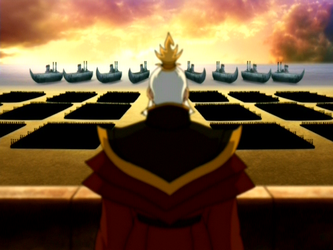
To conquer Poland, Hitler argued that he was invading it in self-defense to free and protect Germans in the Polish Corridor (territory that was disputed between Poland and Germany at the time), despite his true intention being taking over all of Poland, not just the Polish Corridor, as part of his plan to establish The Third Reich. After 9/11, Bush and the American government used the event to garner public support for the war against Afghanistan in the name of "national security", which has led to the deaths of tens of thousands of Afghan civilians who were not threatening the security of the U.S. at all. Whenever there is a war, all sides involved will try to exploit it for their own gain, oftentimes being an aggressor themselves at some point during the conflict, which is why it's near impossible for any side to be completely in the right when fighting in wars .
2 - Just because a side is fighting against another side that is evil, this doesn't automatically make the individuals fighting for that side good.
To put it into perspective, although the soldiers of the Earth Kingdom were fighting against the oppression and aggression of the Fire Nation, they were still capable of committing the same evil acts being committed by Fire Nation soldiers. This is demonstrated in "Zuko Alone", when Zuko refers to the Earth Kingdom soldiers extorting an Earth Kingdom village as bullies.
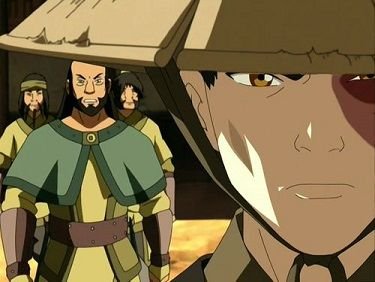
While it's easy for people to understand this concept when it comes to sides they don't align themselves with, they tend to try to justify, overlook and downplay the wrongdoings of their sides and emphasize the wrongdoings of the opposing sides due to natural and socially constructed biases. An example that perfectly resembles this theme is when the people of a country fail to acknowledge the evil perpetrated by soldiers fighting on their behalf, while quickly condemning those same actions committed by other soldiers. Instead of judging the actions of all sides objectively and impartially, most are taught to unquestioningly view their country's soldiers as brave heroes and anyone who fights against them as the enemy, regardless of their behavior or reasons they are fighting in the first place.
Another example is the rioting that occurred in Charlottesville between some white nationalists and members of Antifa. Of course there were others involved, but from what I understand, these are the two main groups that clashed with each other. Predictably, each group blamed the other for the violence, even though both groups engaged in it. To be clear, I am not saying that both sides are the same. They obviously have very different worldviews, ideologies and goals. I am just pointing out that each side was violent during the riots, and that they focused on criticizing the violent actions of the other while ignoring their own.
3 - You can't lump individuals together into a side or group solely based on their nationality.
How many times have you heard "Not all (insert group of people here)"? Hopefully a lot, because it's true, especially when it comes to nationality. It is irrational to blame everyone from a certain country for the actions of some who are from the same country, as it is impossible for them to be acting on behalf of the entire country. In one instance in the show, one of the main protagonists defends a civilian of the Fire Nation from being attacked by someone angry at Fire Nation soldiers, as he wasn't a threat, and they didn't know whether he even supported the war or not. Going back to "The Avatar and the Firelord", Aang states that anyone is capable of being either good or evil no matter where they are from, using the examples of Roku and Sozin. Both were from the Fire Nation, but Roku opposed and actively tried to stop Sozin from starting the war.
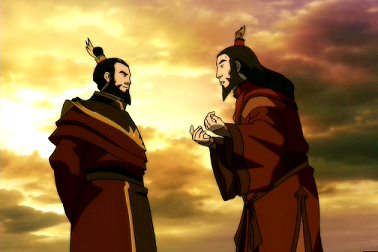
People who share the same nationality hold a vast amount of different viewpoints, beliefs, values and experiences because they are individuals, and should be judged as such. Even "patriots" that are proud to be part of their country disagree on what it means to be patriotic. Burning the American flag is a prime example of what is seen as both patriotic and unpatriotic by some Americans who consider themselves "patriots". Instead of assuming things about others based on where they live and what their nationality is, it is important to give them the benefit of the doubt by regarding them as individuals as opposed to "American", "Chinese", "German" and so on.
Now that I went over what I believe the show got right, I will move on to what I believe it got wrong:
The finale.
When people in power abuse it, the most common solutions that are brought up are to remove them from their positions, either "through the system" by way of impeachment or voting for other candidates, or forcibly. Such was the case in Avatar: The Last Airbender, where Aang fights with Firelord Ozai to dethrone him so that Zuko can assume the throne and end the war. The finale of the series was made with the belief, which is held by many, that the problem of power being used for evil is the person with that power. After all, it was Ozai who decided to continue and escalate the war to the point of trying to wipe out the entire Earth Kingdom from existence. Despite this, Ozai was not the main issue that should have been addressed at the end of the show.
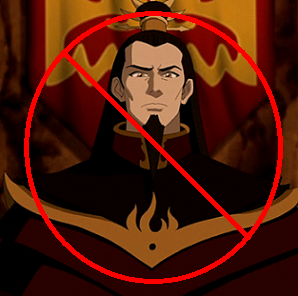
The citizens of the Fire Nation went along with, and the soldiers of the Fire Nation carried out, the will of Ozai because they believed in the idea of political "authority". This idea implies that all of the active laws and orders from those in authority should be obeyed and enforced no matter what. In other words, the belief in "authority" is the belief that if something is signed into law, or an order is given, by those in power, it must be implemented and followed whether it is right or wrong. Admittedly, barely anyone believes in authority completely, since it is easy to come up with a hypothetical order or law evil enough for most to justify disobeying it. Nonetheless, this literal definition still might sound strange to a lot of people since "authority" is hardly defined in those terms, so I will offer some examples.
If people disagree with a law that their government passed, they usually hold demonstrations, petition against it or ask their congressperson to repeal it. However, the majority are hesitant to advocate disregarding or disobeying laws they see as wrong, simply because they are "laws", as we have heard repeatedly that obedience is good and disobedience is bad. Well, what is a "law"? Removing the labels of "authority" and "law" from the equation, it is a command issued by a person or group of people backed by the threat of force. Alright, is it automatically good to obey orders and automatically bad to disobey orders? No. For example, it would be good to disobey an order to rob or kill innocent people and bad to obey that same order. Also, the fact that bad laws can be repealed later doesn't make it okay for them to be enforced to begin with, because they are still bad.
Before, I said that almost no one believes in "authority" entirely, but even this isn't accurate. There is no middle ground or grey area when it comes to this concept. People getting to choose which orders and laws to obey from their government completely contradicts and defeats the purpose of "authority", because that isn't obedience to their government or those who supposedly have authority, it is obedience to laws they agree with. Either the person or people in power wield legitimate authority and must be obeyed, or they don't. In essence, "government", "law" and "authority" isn't about abiding by necessary rules that create peace and order, it is just about obeying those in power. This is why, just as the series misunderstood the problem, it also got the solution wrong. Replacing Ozai with Zuko does not tackle the main problem of the belief in "authority".
Yes, Zuko ended the war and wanted to bring an era of peace, but let's take a look at this aspect from the perspective of "authority". The Fire Nation soldiers would be returning home not because they shouldn't have attacked innocents in the first place, but because Zuko ordered it. In this case, the order was good because it ended senseless violence, but that doesn't factor into whether the order should be followed in the case of "authority". If it did, then the idea of "authority" would have allowed for the soldiers to ignore Sozin's order to start the war since it was immoral, but it doesn't. In the eyes of "authority", Sozin had authority because he was in power and he gave an order, so it was to be carried out.
The fact that the belief in "authority" disregards the notion of right and wrong makes it dangerous and is reason enough to do away with it. When all is said and done, the soldiers did the have right to disobey Sozin, just as the soldiers of Nazi Germany had the right to disobey Hitler, as it was the moral thing to do, which renders authority irrelevant too. Many imagine that without authority everybody can do as they please, as there are no rules or enforcers of those rules, and this is a misguided assumption. It is always wrong to kill, steal from, and attack others in general, meaning that people will always have the right to defend themselves from such acts, regardless of what the laws are. Asking "Who decides what's right and wrong?" is not only the wrong question, but an absurd one as well. No one can decide or declare what reality is, it just is. What people perceive reality to be doesn't change that fact.
I wrote this article to share my thoughts on the series from the perspective of a voluntaryist, or someone who believes all human action should be voluntary, as the name suggests. This ideology seems like common sense because it is, and many understand the principles of self-ownership (no one can determine how you live your life because you own yourself and vice versa) and non-aggression (using violence is immoral except for self-defense). Yet most of the world thinks that these principles don't apply to those with "authority", when in actuality, they do. Understanding that everyone is equal, has the same basic natural rights and is subject to the same rules of morality is the most significant step in realizing that there is no such thing as legitimate authority, and therefore no legitimate rulers, as no one is above anybody else.
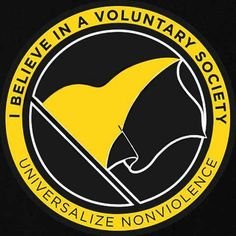.jpg)
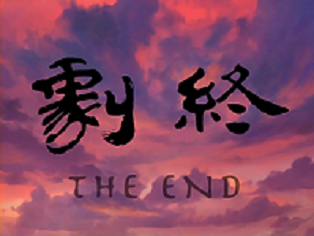
There are so many things to say about this article... But just to begin with, it is highly discussed if it is an
Hi okutavio, only part of your comment got posted. Do you mind submitting it again?
This upvotes for you.
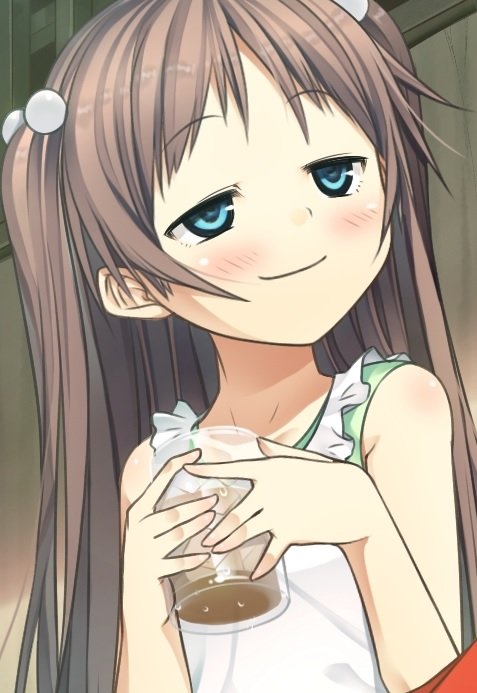
Congratulations @censoredrefugee! You have completed some achievement on Steemit and have been rewarded with new badge(s) :
Click on any badge to view your own Board of Honor on SteemitBoard.
For more information about SteemitBoard, click here
If you no longer want to receive notifications, reply to this comment with the word
STOP